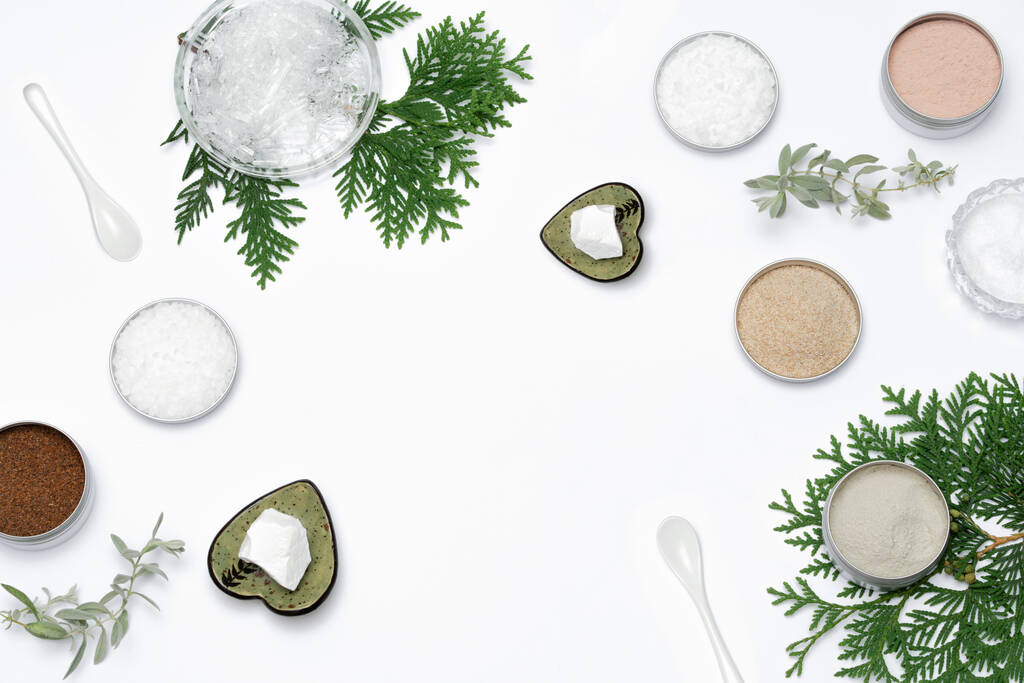Discover the truth behind cetyl alcohol in skincare. This article explains its role, benefits, and debunk common myths surrounding this ingredient.
The Role of Cetyl Alcohol in Skincare: Explained and Demystified
Cetyl alcohol is a skincare ingredient that often raises eyebrows. With a name like “alcohol,” it’s easy to assume that it must be drying or irritating. But fear not, dear readers! Today, we’re here to demystify the role of cetyl alcohol in skincare and uncover its impressive benefits for your skin. So grab a cup of tea and get ready to explore the fascinating world of cetyl alcohol!

Understanding the Role of Cetyl Alcohol
Before we dive into the properties and perks of cetyl alcohol, let’s take a moment to understand what it actually is. Cetyl alcohol, my friends, is a fatty alcohol derived from natural sources like coconut or palm oil. Unlike its drying cousins, such as ethyl alcohol, cetyl alcohol is actually a moisturizing ingredient that helps lock in hydration and keep your skin feeling oh-so-soft and supple.
Derived from coconut or palm oil, cetyl alcohol is a versatile skincare ingredient that offers a plethora of benefits. Let’s explore its properties further to understand why it’s such a superstar in the world of skincare.
Exploring the Properties of Cetyl Alcohol
So, what makes cetyl alcohol the superstar it is? Well, for starters, it’s an emollient, which means it has the power to supercharge the smoothness of your skin. When you apply a skincare product containing cetyl alcohol, it creates a thin film on the skin’s surface, helping to seal in moisture and reduce water loss. Say goodbye to parched, rough skin!
But that’s not all. Cetyl alcohol boasts superior fatty alcohol properties that help enhance the skin barrier. This barrier is like a protective shield, guarding your skin against environmental aggressors and locking in moisture. So you can bid adieu to dry, dehydrated skin and hello to a plump, healthy complexion!
With its multifaceted properties, cetyl alcohol is truly a game-changer in the world of skincare. Let’s dive deeper into its benefits to understand why it’s a must-have ingredient in your beauty arsenal.
Cetyl Alcohol as an Emollient for Smooth and Soft Skin
Imagine a skincare ingredient that’s like a fluffy cloud gently caressing your skin. That’s the magic of cetyl alcohol! Its emollient nature makes it an amazing addition to your skincare routine, especially if you dream of baby-smooth skin.
When you apply cetyl alcohol-infused products, they glide effortlessly onto your skin, creating a velvety texture that melts away dryness and roughness. The result? A touchably soft complexion that’ll make you want to snuggle against your own skin. It’s like a hug in a bottle!
But what sets cetyl alcohol apart from other emollients? Well, it has a unique ability to penetrate the skin deeply, ensuring long-lasting hydration. So, not only does it provide instant smoothness, but it also works its magic from within, keeping your skin plump and moisturized throughout the day.
Enhancing Skin Barrier and Hydration with Cetyl Alcohol
If you’re on a quest for dewy, hydrated skin, cetyl alcohol has got your back. Its ability to reinforce the skin barrier means you can wave goodbye to moisture loss and hello to plump, well-hydrated skin.
By locking in precious moisture, cetyl alcohol helps your skin remain hydrated throughout the day. No more mid-afternoon dry patches or tightness! Your skin will stay supple and happy, like a hydrated little cucumber.
But that’s not all. Cetyl alcohol also works its magic by preventing transepidermal water loss, which is a fancy way of saying it keeps the moisture locked in. This means that even in harsh weather conditions or dry environments, your skin will stay protected and moisturized.
The Importance of Texture in Skincare Products with Cetyl Alcohol
Picture this: You’re about to slather on a luxurious face cream, and as soon as you start applying it, you’re greeted with a gloopy mess that refuses to sink in. Sounds frustrating, right? Well, that’s where cetyl alcohol comes to the rescue!
Cetyl alcohol is known for its contribution to creating those dreamy textures in skincare products. It helps improve the spreadability and absorption of creams, ensuring they glide smoothly onto your skin without leaving any residue or heaviness behind. It’s like the magic wand that transforms your skincare routine into a spa-like experience!
But it doesn’t stop there. Cetyl alcohol also works as a stabilizer, ensuring that the texture of your skincare products remains consistent over time. So, whether it’s a lightweight lotion or a rich, indulgent cream, cetyl alcohol ensures that the product feels luxurious and indulgent every time you use it.
Cetyl Alcohol as a Surfactant for Effective Cleansing
Now, you might be wondering, “Does cetyl alcohol only work its wonders in moisturizers?” Absolutely not! Cetyl alcohol is also a superhero in the realm of cleansers and face washes.
As a surfactant, cetyl alcohol helps lift away impurities, dirt, and excess oil that have taken up residence on your lovely face. It joins forces with other cleansing agents to create a gentle, yet effective, cleansing experience. Say goodbye to clogged pores and hello to a squeaky-clean complexion!
But what sets cetyl alcohol apart from other surfactants? Well, it’s incredibly gentle on the skin, making it suitable for even the most sensitive complexions. It cleanses without stripping the skin of its natural oils, leaving it feeling refreshed and balanced.
So, whether you’re looking for a moisturizer, a cleanser, or a face wash, cetyl alcohol is a versatile ingredient that can cater to all your skincare needs. With its moisturizing, emollient, and cleansing properties, it’s no wonder that cetyl alcohol has become a staple in the beauty industry.
Debunking Myths: Is Cetyl Alcohol Safe for Your Skin?

Now, before we bid adieu to our cetyl alcohol adventure, let’s address the lingering concern: Is cetyl alcohol safe for your precious skin?
The short answer is yes! Cetyl alcohol is considered safe for most skin types, including sensitive and acne-prone skin. It’s gentle and non-irritating, so you can say goodbye to any worries about skin reactions.
But let’s delve deeper into the world of cetyl alcohol and explore its benefits for your skin. Cetyl alcohol is a fatty alcohol derived from natural sources such as coconut oil or palm oil. It is commonly used in skincare products as an emollient and thickening agent. Its main function is to lock in moisture and prevent water loss from the skin, resulting in a hydrated and supple complexion.
Furthermore, cetyl alcohol has been found to have soothing properties, making it an excellent choice for those with sensitive or easily irritated skin. It helps to calm redness and inflammation, providing relief to individuals dealing with conditions like eczema or rosacea.
Additionally, cetyl alcohol can enhance the texture of skincare products. It gives creams and lotions a smooth and luxurious feel, making the application a delightful experience. Say goodbye to sticky or greasy formulas and hello to a velvety touch on your skin.
However, as with any skincare ingredient, some individuals may have sensitivities or allergies. If you notice any adverse reactions, such as redness, itching, or a rash, it’s always a good idea to patch test new products or consult with a dermatologist. They can help determine if cetyl alcohol is the culprit or if there are other factors at play.
Moreover, it’s worth mentioning that cetyl alcohol is not the same as drying alcohols, such as ethanol or isopropyl alcohol. These types of alcohols can be harsh and stripping to the skin, leading to dryness and irritation. Cetyl alcohol, on the other hand, is a fatty alcohol that does not possess these drying properties.
And there you have it, folks! The role of cetyl alcohol in skincare has been demystified and explained. It’s time to embrace this hero ingredient and let it work its moisturizing magic on your skin. So go forth, slather on that cetyl alcohol-infused goodness, and revel in the glory of a hydrated, smooth, and happy complexion!






[…] meet Potassium Cetyl Phosphate! This fabulous compound is a type of potassium salt derived from cetyl alcohol and phosphoric acid. Sounds like a chemistry experiment, right? Well, fear not, because this […]
[…] that we know a little more about polyethylene, let’s dive into its role in skincare products. You might be wondering why a plastic ingredient like polyethylene is used in products […]
[…] conclusion, propanediol plays a crucial role in skincare by providing hydration and enhancing the absorption of other beneficial ingredients. Whether […]